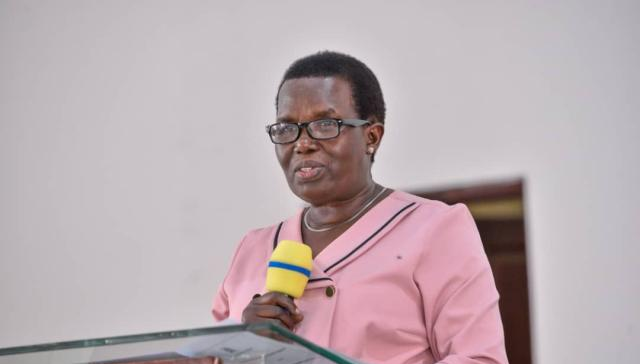Several students who qualified for the Uganda Certificate of Education (UCE) under the new lower secondary curriculum may not be placed in A-level schools due to failure to meet the required subject grades.
While opening the Uganda Advanced Certificate of Education (UACE) selection exercise, Dr Jane Egau, the Undersecretary at the Ministry of Education and chairperson of the National Selection and Placement Committee, said that for a student to be admitted to A-Level, they must have at least a minimum grade of D in each of the three subjects that make up their chosen combination.
Under the new curriculum, a student qualifies for a UCE certificate if they obtain at least a D grade in at least one of the nine subjects sat for. Such a student was given results with ‘Result One,’ meaning they have passed UCE.
However, while some students were awarded certificates with result one, those who scored only one or two D grades will not be eligible for Senior Five placement based on the official selection guidelines.
With this requirement in place, many students may miss out on A-level admission due to failing to attain D grades in the three subjects needed to form a valid combination. Although the national selection and placement committee didn’t disclose the statistics of the affected learners, one of the members noted that many students are falling under this category.
Dr Jane Egau noted that those who qualified for a certificate after obtaining at least one D in the nine subjects but did not qualify for a combination of subjects in Senior Five can explore other learning paths. “There are many alternatives. For instance, they can pursue Technical and Vocational Education and Training (TVET) or any skilling programs, and they will excel,” she said.
According to the placement committee, by the end of the exercise, they expected to have placed 8,113 out of 9,742 candidates who sat for the transitional examination under the old curriculum, and 350,146 out of 357,120 candidates who sat under the new curriculum. The students are expected to be placed in about 2,000 A-Level schools, both private and government-run.
On the first day of the selection and placement exercise, top and traditional schools, as usual, had set strict performance requirements for students to join them in Senior Five. For instance, Kings College Buddo, which selected 150 students, considered only those who had 7 As and 2 Bs from the UCE.
The school rejected over 2,700 learners who had made it their first choice for senior five. Godfrey Kasamba, Deputy Head Teacher, said that 2,903 learners selected the school as their first choice. “Of these, only 150 have been admitted, 1,527 were redirected to other schools, and 1,226 were not selected.”
Ntare School considered students with at least 4 As and 4 Bs out of eight subjects from nine and ended up admitting 130 students.
Ndejje, which selected 150, applied the same criteria. St. Henry’s College Kitovu considered learners with at least 3 As and 6 Bs. Nabisunsa selected students with 8 As and 1 B, while Kibuli S.S considered those with 3 As and 6 Bs and admitted 200 learners.
For a learner to be given a combination, the Ministry states they must have at least a D in each subject, meaning a student cannot offer a subject in which they obtained a grade E at UCE. However, aside from this national minimum qualification, schools have set their internal measures, with many top schools limiting science combinations to students who have obtained As or Bs in relevant subjects and making some adjustments to Cs in arts.
For example, Kings College Buddo noted that a science combination must be obtained in subjects where a learner achieved an A. Ntare’s yardstick is set at 3 As, or 2 As and 1 B. St. Andrew’s College Moyo requires only As for science, and the minimum for arts is a C in each subject.
Bishop’s SS Mukono stated that they will consider at least 2 Bs and 1 C in any of the preferred combinations.
Hadija Namiiro, Director of Studies at Kibuli S.S, extended an olive branch to its former UCE students, noting although students from outside the school will be offered combinations based solely on excellent performance (3 As), they will have a different bar for their students by reviewing their past performance from senior two and considering their interests.
END

